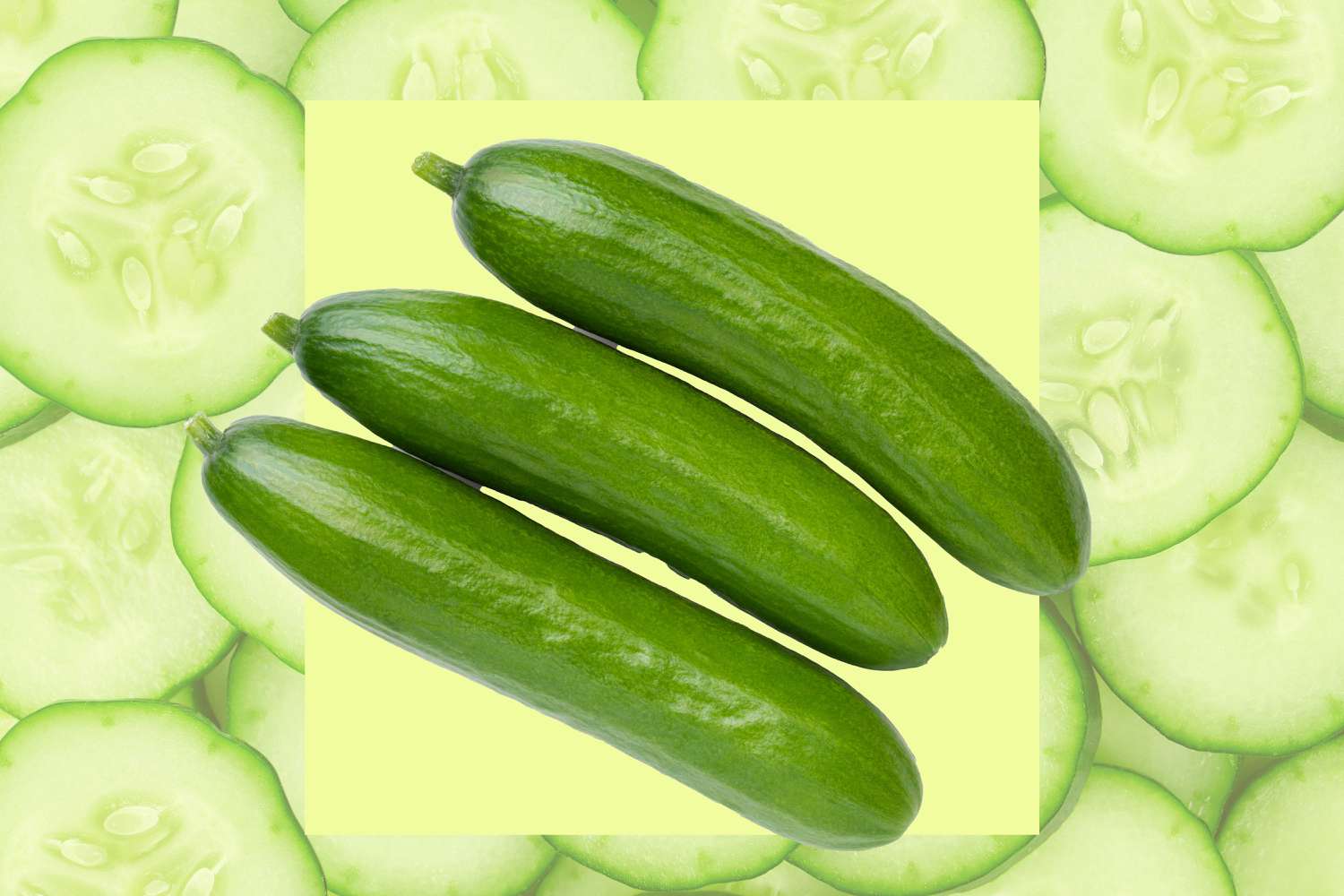"Exploring the Health Benefits and Nutritional Profile of Cucumbers"

To be “cool as a cucumber” means you’re chill, undisturbed, and laid-back. This idiom accurately reflects the vibe of this food. Cucumbers' flavor is cool and mild, and their texture is delightfully crisp. If you’ve ever crunched into a fresh cucumber during the summer harvesting season of May to August, you’ve experienced the pleasure firsthand.
Of course, digging into raw crudités isn’t the only way to enjoy cucumbers. These veggies—which are, by botanical definition, technically fruits—have uses for everything from salads and pickles to spa days. Is there any other food that makes a great relish or salsa and soothes puffy eyes? We think not. Here’s a look at the healthy, hydrating benefits of cucumbers.
You could plant a whole garden of different types of cucumber—but some of the most popular varieties include the following.
Cucumbers are nutritious fruits with a high water content. They also offer a host of potential health benefits. Here are some ways you may benefit from eating cucumbers.
At 95% water, cucumbers are some of the most hydrating foods around. And because most of us get about 20% of our daily fluids from foods, incorporating cucumber into your diet is a great way to up your liquid intake. Keeping well-hydrated also reduces the risk of health issues like kidney stones, constipation, and urinary tract infections.
Antioxidants are plant compounds that quell inflammation by clearing cells of free radicals. Cucumber happens to have several types of them, including flavonoids and tannins. These are likely why research has linked cucumber extract to improvements in inflammatory conditions like osteoarthritis of the knee. Just note that cucumber extract contains far more antioxidants than a cucumber you’ll pick up at the grocery store.
Cucumbers are the opposite of calorie-dense. Even if you eat an entire cuke in one sitting, you’ll only take in about 45 calories. In other words, they’re an excellent choice if you’re pursuing weight loss. In fact, some research has found that eating low-energy-dense foods is associated with body weight reduction.
Cucumber’s hydrating powers add to the weight loss equation because increasing your fluid intake through both foods and beverages may naturally suppress your appetite, stimulate your metabolism, and decrease your overall calorie intake.
Between their sky-high water content and a hint of fiber (1.5 grams), cucumbers are a friend to gut health. Studies show that increasing fluids can promote more regular bowel movements in people with chronic constipation, and fiber provides food for healthy gut bacteria.
If you pickle your cucumbers, their gut health benefits can go even further. Fermented foods like pickles help increase microbial diversity in the digestive tract and decrease inflammatory proteins.
Cucumbers are an excellent source of vitamin K, providing 41% of the recommended intake per serving for men and 54% for women. This vitamin is known for helping blood clot, supporting strong bones, and potentially reducing the risk of coronary heart disease.[cite] Because vitamin K is fat-soluble, you can boost your absorption by pairing cucumbers with a source of fat, such as a creamy dip or an olive oil-based dressing on salad.
Here’s one benefit that doesn’t come from actually eating cucumbers. Applying slices to your eye area — spa-style — could legitimately reduce swelling and irritation, according to older research. It's worth a shot, especially if you don't have an ice roller at home.
Different types of cucumbers may be more suited to different culinary uses—so if a recipe calls for a specific variety, it’s best to try to track it down. For instance, certain types like gherkins or kirbies may be best for pickles, while sushi recipes often call for an English cucumber. To choose high-quality cucumbers, look for ones that are firm with just a little bit of give and no soft spots.
Purchasing organic produce can support local farms and sustainable agricultural practices—so if you have the budget for organic cucumbers, go for it! Currently, though, cucumbers are not on the Environmental Working Group’s (EWG) Dirty Dozen list of produce with the highest levels of pesticides.
Cucumber is so much more than a garnish. Add them to your diet in any of the following ways.




